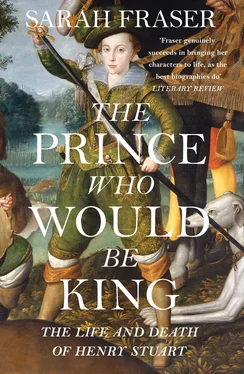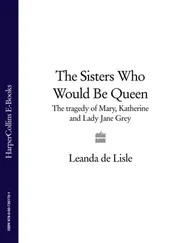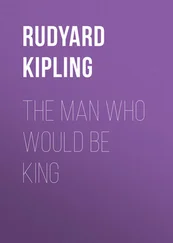Sarah Fraser - The Prince Who Would Be King - The Life and Death of Henry Stuart
Здесь есть возможность читать онлайн «Sarah Fraser - The Prince Who Would Be King - The Life and Death of Henry Stuart» — ознакомительный отрывок электронной книги совершенно бесплатно, а после прочтения отрывка купить полную версию. В некоторых случаях можно слушать аудио, скачать через торрент в формате fb2 и присутствует краткое содержание. Жанр: unrecognised, на английском языке. Описание произведения, (предисловие) а так же отзывы посетителей доступны на портале библиотеки ЛибКат.
- Название:The Prince Who Would Be King: The Life and Death of Henry Stuart
- Автор:
- Жанр:
- Год:неизвестен
- ISBN:нет данных
- Рейтинг книги:3 / 5. Голосов: 1
-
Избранное:Добавить в избранное
- Отзывы:
-
Ваша оценка:
- 60
- 1
- 2
- 3
- 4
- 5
The Prince Who Would Be King: The Life and Death of Henry Stuart: краткое содержание, описание и аннотация
Предлагаем к чтению аннотацию, описание, краткое содержание или предисловие (зависит от того, что написал сам автор книги «The Prince Who Would Be King: The Life and Death of Henry Stuart»). Если вы не нашли необходимую информацию о книге — напишите в комментариях, мы постараемся отыскать её.
NOW THE SUBJECT OF BBC2 DOCUMENTARY The Best King We Never Had
The Prince Who Would Be King: The Life and Death of Henry Stuart — читать онлайн ознакомительный отрывок
Ниже представлен текст книги, разбитый по страницам. Система сохранения места последней прочитанной страницы, позволяет с удобством читать онлайн бесплатно книгу «The Prince Who Would Be King: The Life and Death of Henry Stuart», без необходимости каждый раз заново искать на чём Вы остановились. Поставьте закладку, и сможете в любой момент перейти на страницу, на которой закончили чтение.
Интервал:
Закладка:
Written exchanges between father and son could swing easily between the private and public, between the occult and the rational, even; between loving encouragement and the drawing of a moral lesson from every little thing. Henry told his father he thought a witch on trial for malefice was a fake, and that they should do something about it. James thanked his son for the ‘discovery of yon little counterfeit wench’, and further counselled: ‘You have often heard me say that most miracles nowadays prove but illusions, and ye may see by this how wary judges should be in trusting accusations without an exact trial … God bless you, my son, your loving father, James R[ex].’
Forced into the background of Henry’s life, by the turn of the century Anne of Denmark had converted to Catholicism, having most likely been introduced to the Roman religion by her close confidante, Henrietta, Countess of Huntly, the daughter of the Duke of Lennox. Anne kept up her campaign to get guardianship of her son and told Pope Clement that she would raise her children as Catholics – though how she would do that when they were firmly ensconced in three different Protestant households was hard to see. She inferred James VI might grant Catholics toleration from Protestant vows of obedience if he were to ascend the English throne. The king’s own pronouncements on the subject made many Catholics believe it also. The pope wrote to James offering a large sum in exchange for having Henry in Rome and educated in the Vatican. James refused.
As queen consort, Anne explained, she had to attend ‘the rites of heretics’ with the king and asked the pope’s absolution for doing so. She did not like it, but knew she must acquiesce, due ‘to the hostile times which we have to endure’. The queen’s ‘court Catholicism’ was a form of religious dissimulation widely practised in both England and Scotland at every level of society. Most crypto-Catholics were loyal to the Protestant crowns, including many of Queen Anne’s supporters.
Anne’s conversion and secret correspondence with Pope Clement did little to advance the cause of domestic harmony between Henry’s parents. ‘The King and Queen are in very evil ménage,’ a Scottish noble reported to Cecil, ‘and now she makes to take upon her more dealing than hitherto she hath done. At public table she said to him that he was advised to imprison her, but willed him to beware what he “mintit” at.’ When James responded that she must be mad to believe such a thing, Anne replied he should find that she ‘was neither mad nor beside herself if he “mintit” at that he intended’.
By early 1603 the English saw how ‘new troubles arise daily in Scotland, but the worst of all is the domestic dangers and heart breaking that the King finds in his own house’. What discords, they wondered, would king and queen bring to London if James VI succeeded to the English throne?
England was about to suffer discords of her own. Troubled by ‘choler and grief’, Elizabeth was in steep decline. Two years earlier, in February 1601, the Earl of Essex had risen against the queen to force her to name James as her successor in Parliament. The coup failed and he was executed. Since then Elizabeth had aged rapidly. Her Privy Council was now dominated by men more concerned to caretake than develop England’s influence in Europe as Christendom’s principal Protestant state.
Some of Queen Elizabeth’s militant Protestant servants saw the coming of the Calvinist Stuarts as a chance to change this. And perhaps soon.
For, on 24 March 1603, at Richmond Palace, Elizabeth I died, departing this life ‘mildly, like a lamb’.
PART TWO
England
1603–10
SIX
The Stuarts Inaugurate the New Age
The Privy Council locked the gates of Richmond Palace, closed the ports and moved to Whitehall. Grief over the queen’s death was tempered by memories of Essex’s uprising and weariness of the Armada war in which the country was locked. The status quo needed to change. It seemed that, at the last minute, on her deathbed, even Elizabeth had acknowledged it and named James her heir. When asked by her Privy Council if she agreed that the Scottish cousin should succeed her, she was seen to move her arm to her head, which Cecil took as a sign of assent. Public mourning mixed with fear and anticipation as news of the queen’s death spread across London.
Elizabeth’s councillors wondered what English Catholics, maybe thirty per cent of the population, were planning. And, what would James VI do if he met the anticipated resistance. He might invade, backed by his powerful Danish in-laws?
The council organised to get the new dynasty – king, queen, heir, the rest of the royal children – under English protection and control. Robert Cecil proclaimed King James of England from the gates of Whitehall barely seven hours after Elizabeth’s death. As the news spread, Thomas Cecil, Lord President of the North, reassured his half-brother: ‘the contentment of the people is unspeakable, seeing all things proceed so quietly, whereas they expected in the interim their houses should have been spoiled and sacked’.
Nine days after Elizabeth died, King James VI of Scotland and I of England and Wales, and Ireland, and Queen Anne, attended a service of thanksgiving at St Giles Cathedral in Edinburgh – no mourning here. James addressed his people, promising to return every three years. The following Tuesday, the king kissed his wife in front of the crowds jammed into the high street, and left. The three royal children were safe in nurseries dotted between Edinburgh and Stirling. Two others – Margaret, and Robert (who died in 1602) – had not survived infancy. The queen was pregnant again, for the sixth time.
The king wrote to Henry, apologising for not coming to tell his son in person of their great good fortune, ‘but time is so precious’. James could not relax until he had the crown of England on his head. ‘Let not this news make you proud or insolent,’ he warned his boy, ‘for a King’s son and heir were you before, and no more are you yet … Be therefore merry, but not insolent,’ he said. ‘Keep a greatness, but sine fasti ,’ without giving yourself airs and graces. ‘Be resolute, but not wilful.’ He recommended the prince keep the Basilikon Doron by him, and signed off, ‘Your loving father, James R’.
It was intended that princes Henry and Charles and Princess Elizabeth would remain in Scotland for the rest of their childhoods. At a stroke, nine-year-old Henry faced a future without either of his fathers – James and Mar. An Anglophile familiar with the English court, the earl had to accompany the king, who had never been to England (let alone Wales or Ireland).
Henry turned to his mother at once, writing: ‘I will lose that great benefit I had by’ my father’s ‘frequent visitation’. So, ‘I most humbly request your Majesty to supply that lack by your presence, which I have the more just cause to crave that I have wanted it so long’, before adding forlornly, ‘to my great grief and displeasure’. The boy had never seen enough of her. However, Anne had been ordered to leave Scotland and join the king in London as soon as she was packed.
Henry hoped ‘your Majesty by sight may have, as I hope, the greater matter to love me and I, likewise, may be encouraged to go forward … and to honour your Majesty with all due reverence …’. Couched in the usual language for a prince addressing the queen, nevertheless his words are full of longing. He spoke of love, not merely honour and reverence.
He did not need to ask twice. From the battlements of Stirling, the Mar clan watched as Anne approached – attended by a trail of armed nobles, soldiers and servants. It looked to some like the long dreaded coup to seize the prince. But the queen’s ‘request’ that her son be brought out to greet her ‘prevailed not. The Lady Mar and … the Lord of Keir gave a flat denial and would not suffer the Prince to go out.’ Old Lady Minnie told the queen that if Henry ‘went with her, the Catholics would certainly abduct him, in order to have a hostage in their hands when they rose in revolt’. This was a barb, as the queen was Catholic. Anne demanded they admit her, then. The Mars regretted it, but they could not refuse entry to the queen’s grace, especially in her condition.
Читать дальшеИнтервал:
Закладка:
Похожие книги на «The Prince Who Would Be King: The Life and Death of Henry Stuart»
Представляем Вашему вниманию похожие книги на «The Prince Who Would Be King: The Life and Death of Henry Stuart» списком для выбора. Мы отобрали схожую по названию и смыслу литературу в надежде предоставить читателям больше вариантов отыскать новые, интересные, ещё непрочитанные произведения.
Обсуждение, отзывы о книге «The Prince Who Would Be King: The Life and Death of Henry Stuart» и просто собственные мнения читателей. Оставьте ваши комментарии, напишите, что Вы думаете о произведении, его смысле или главных героях. Укажите что конкретно понравилось, а что нет, и почему Вы так считаете.












